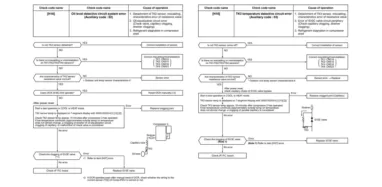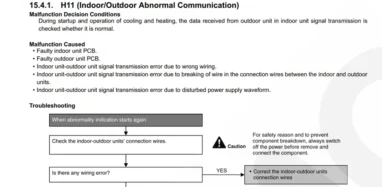Can you plug an air conditioner into a surge protector? If you are one of those people who are asking this very question right now, then, you will surely be glad to know that yes, you can use your AC with surge protectors.
You just need to plug your room air conditioner directly into the wall unit. The unit can be plugged in a surge protector if you are planning to use an extension cord.
Why do you need a surge protector for your air conditioner?
You probably plug your computer into a surge protector. However, just so you know, your air conditioner also needs one.
Small electrical surges can happen any time and more often than not, you might not know that it is even happening in the first place. In general, these surges may not be dangerous and these also don’t indicate that there is an issue with the wiring in your property. But, repeated surges through some electronics and appliances can make them fail sooner than expected.
Your air conditioner is one of the most expensive home appliances you can ever have that often require pricey replacements or repairs. Thus, it only makes sense to keep it running smoothly and well-maintained. If your AC unit is not protected from these surges, this may get damaged and a replacement may be necessary.
Power surges – What causes them in the first place?
Power surges are those low duration and high amp electrical power fluctuation. Power surges are both likely to be external or internal. Internal sources are the causes of the majority of unnoticeable small power surges. On the other hand, external sources are the reason for larger power surges.
The following are the causes of internal power surges:
- Faulty appliances
- Faulty circuit breaker box
- Faulty wiring
The causes of external power surges include the following:
- Blown transformers
- Lightning
- Downed power lines
- Other issues with electrical service
There are some places that have experienced a significant increase in the number of their population for the past two decades. These areas have discovered that their electrical grid has already become outdated and provide lower quality service.
Particularly today that most people stay at home, everyone uses more electricity that can further burden the utility service. Once the summer months come and everyone starts using their air conditioners, outages and brownouts may become more frequent as well.
It doesn’t matter what caused the power surge, all of them have effects on all of your home appliances that include your air conditioner.
The effects of power surges on your air conditioning unit
No matter how minor they might be, power surges have lasting effects on your air conditioning system. This may not be initially apparent yet recurring power surges may wear down your AC unit’s compressor. Severe cases of power surges, like those caused by lightning, might not really be enough to require complete AC system replacement.
A power surge can damage your air conditioner through the following:
- Shorting out the compressor or the part circulating and providing the refrigerant with energy
- Frying out circuit board or the brains of the air conditioner unit
- Damaging and overloading the capacitor or that part harnessing electricity and pulling it to the unit
Most of the time, small power surges can intermittently short out the circuit board or overload the capacitor and you might not even realize that the damage is taking place. Sadly, when the time comes that your AC has stopped working, there might already be extensive damage done. This kind of air conditioner repair can get quite expensive.
This kind of power surge may get very dangerous as well. When a power surge forms an electricity arc surrounding the appliance, it will generate heat, then possibly lead to a serious fire. It is important to call a technician immediately when you notice some major power surges.
How does a surge protector work?
A surge protector diverts away excess electricity from the appliance or device and to the electrical outlets grounding wire. This is done with the use of a MOV or metal oxide varistor. It consists of oxide that is sandwiched between the semi-conductors. If there is the correct voltage, nothing happens with the MOV. If there is a spike in voltage or it gets too high, the MOV is going to pull the current to the grounding wire. This is done by the MOV with no need to shut down your air conditioning system.
Benefits of surge protection for your AC
AC surge protection can be the best way for you to ensure that your unit continues to run smoothly for the longest time possible. On average, an air conditioner can last for about 12 to 17 years. But, if there are frequent surges or significant power surges, your air conditioning system may break down much sooner than expected. Remember that power surges never discriminate whether you have a new AC system or an old one.
Here are some of the reasons that surge protectors can save you from frustrations and help you save money at the same time:
- For most homeowners, an air conditioner is their home’s most expensive appliance and a surge protector can help extend your unit’s lifespan.
- Homeowners insurance doesn’t cover appliance replacement or repair.
- If your appliances are covered by home warranty, it will not probably cover them from power surges.
- A surge protector can protect your AC unit from lightning of up to a half mile away.
One more notable advantage of surge protection for air conditioners is the fact that it can lower the downtime of your AC unit. Summers in particular can be very taxing on the local electrical service so it is best to be ready ahead of time for possible outages and surges.
What is the best surge protector for a window air conditioner?
Invest in an AC surge protector today
If you want to enjoy the cooling comfort of your air conditioner for a long time and improve the safety of your home, be sure to install a surge protector before the warmer months kick in.


